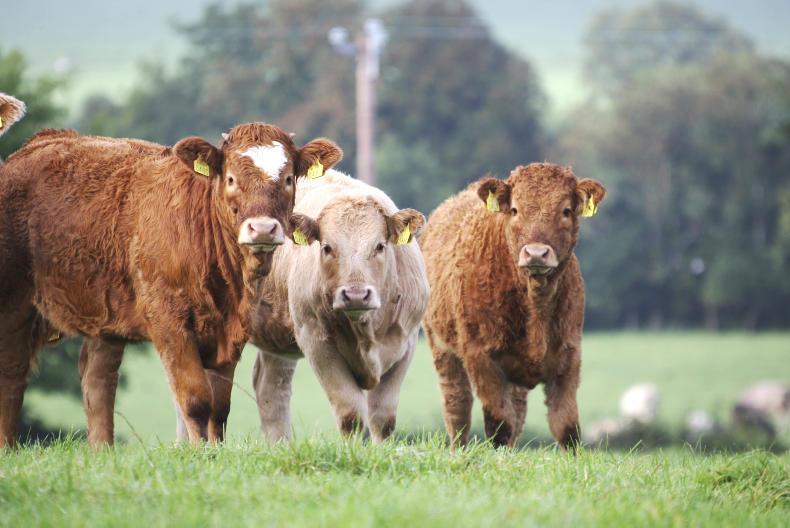The Department of Agriculture is to be involved in the new European joint action on novel technologies, solutions and systems to reduce the greenhouse gas emissions of animal production systems.
The call recognises that a movement towards greater sustainability of livestock production systems will not only require innovative scientific endeavour but must also incorporate all relevant economic, social and environmental dimensions if meaningful results are to be achieved.
The joint action has been initiated under the European Research Area Networks (ERA-NETs) FACCE ERA-GAS, SusAn and ICT-AGRI 2 and funding is provided by participating member states.
In the case of Ireland, funding for these awards is provided by the Department of Agriculture, Food and the Marine’s competitive research programme in partnership with Teagasc’s Walsh Fellowship Programme.
In announcing the awards the Minister said: “Systems of animal production in Europe face significant challenges in curbing GHG emissions while maintaining food security and demand in a changing climate.
“Today’s research funding announcement will make a significant contribution to strengthening the collaborations of Irish research institutions with their international counterparts and help accelerate Ireland’s efforts in meeting these shared challenges.”
The joint call places particular emphasis on incorporating innovative livestock management, novel technologies, systems (including Information and communications technology), decision support tools, robotics and intelligent data analyses with the express intent of producing a meaningful impact on GHG emission within a five year timeframe.
In addition, funded projects must address a combination of at least two of the calls specific research themes:
Theme 1, the “holistic theme”: Agro-ecological approach to whole animal production systems.Theme 2, the “technical theme”: Technical options for the monitoring and mitigation of GHG emissions from animal production systems.Theme 3, the “societal theme”: Social and/or economic approach to livestock production and consumption of animal products.
Stressing his on-going commitment to achieving both economic growth and environmental sustainability, in line with the Food Wise strategy, Minister Creed said: “This type of research is vital to ensuring the economic, social and environmental sustainability of animal production systems."
Read more
Listen: how Canadian farmers get paid more for sustainable beef
Incentives needed for climate-friendly spreading – Teagasc
The Department of Agriculture is to be involved in the new European joint action on novel technologies, solutions and systems to reduce the greenhouse gas emissions of animal production systems.
The call recognises that a movement towards greater sustainability of livestock production systems will not only require innovative scientific endeavour but must also incorporate all relevant economic, social and environmental dimensions if meaningful results are to be achieved.
The joint action has been initiated under the European Research Area Networks (ERA-NETs) FACCE ERA-GAS, SusAn and ICT-AGRI 2 and funding is provided by participating member states.
In the case of Ireland, funding for these awards is provided by the Department of Agriculture, Food and the Marine’s competitive research programme in partnership with Teagasc’s Walsh Fellowship Programme.
In announcing the awards the Minister said: “Systems of animal production in Europe face significant challenges in curbing GHG emissions while maintaining food security and demand in a changing climate.
“Today’s research funding announcement will make a significant contribution to strengthening the collaborations of Irish research institutions with their international counterparts and help accelerate Ireland’s efforts in meeting these shared challenges.”
The joint call places particular emphasis on incorporating innovative livestock management, novel technologies, systems (including Information and communications technology), decision support tools, robotics and intelligent data analyses with the express intent of producing a meaningful impact on GHG emission within a five year timeframe.
In addition, funded projects must address a combination of at least two of the calls specific research themes:
Theme 1, the “holistic theme”: Agro-ecological approach to whole animal production systems.Theme 2, the “technical theme”: Technical options for the monitoring and mitigation of GHG emissions from animal production systems.Theme 3, the “societal theme”: Social and/or economic approach to livestock production and consumption of animal products. Stressing his on-going commitment to achieving both economic growth and environmental sustainability, in line with the Food Wise strategy, Minister Creed said: “This type of research is vital to ensuring the economic, social and environmental sustainability of animal production systems."
Read more
Listen: how Canadian farmers get paid more for sustainable beef
Incentives needed for climate-friendly spreading – Teagasc






 This is a subscriber-only article
This is a subscriber-only article










SHARING OPTIONS: